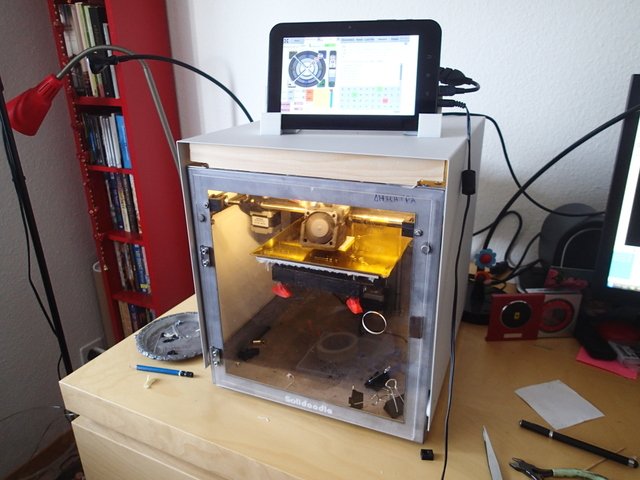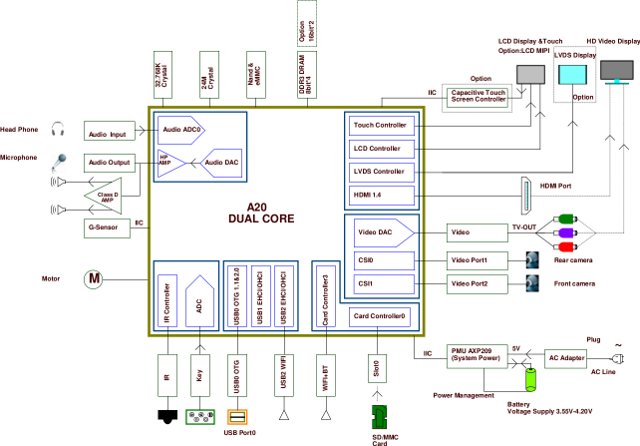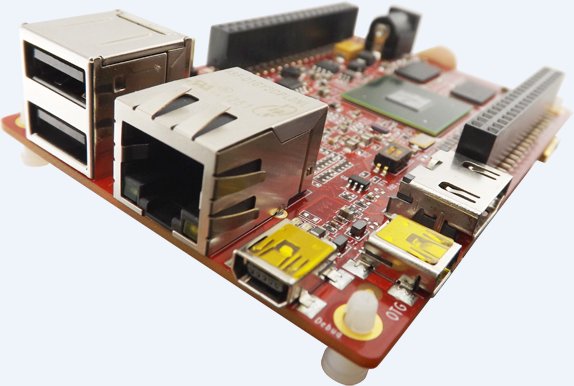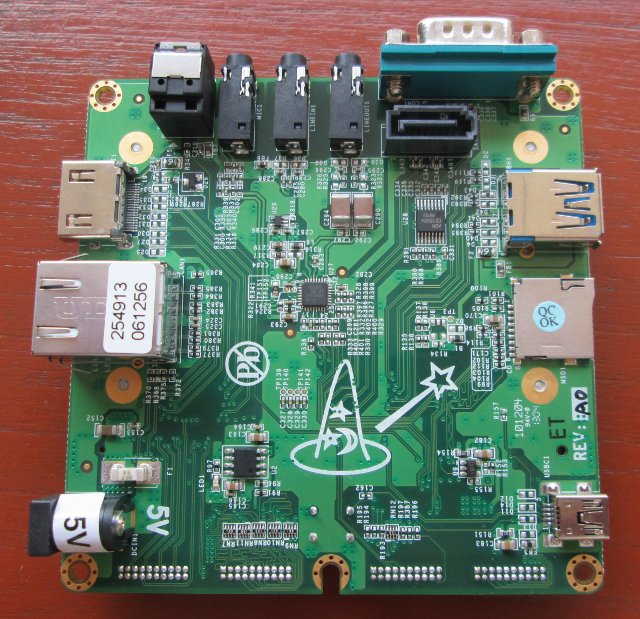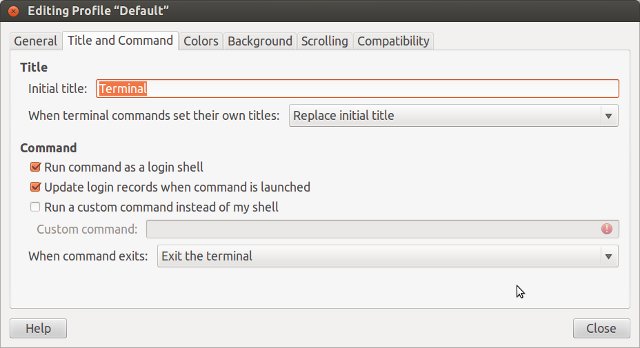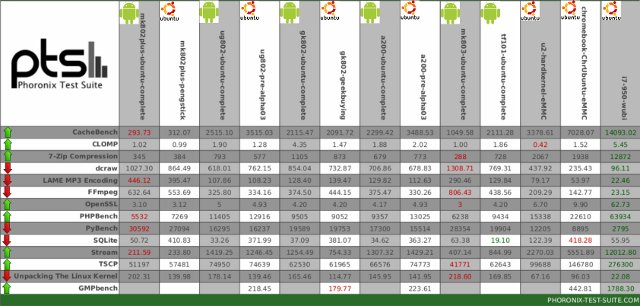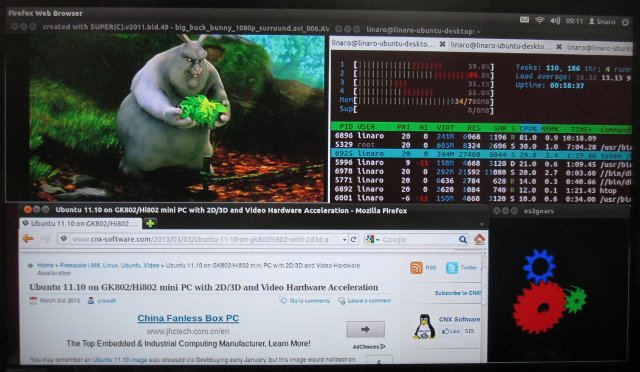PengPod 700 & 1000 are two of the rare Linux tablets to be available on the market. Those tablets are based on AllWinner A10 SoC which can support both Android and Linux thanks to independent developers. After a successful Indiegogo campaign, where they managed to received pledges for a few hundred units of both model, people started to receive their Linux tablets earlier this year. Francesco Santini decided to purchase PengPod 700 in order to use it as an touchscreen controller for his 3D printer (Solidoodle). He modified Pronterface, a graphical user interface written in Python to control 3D printer, for the 7″ display the of PengPod tablet, and made the change available in his github account https://github.com/fsantini/Printrun-pengpod700. He uses a SAMBA share to copy G-code files (“G-code is the common name for the most widely used numerical control (NC) programming language”), and load the required file from the PengPod […]
AllWinner A20 Linux Source Code, EVB Schematics and Product Brief
Hardware based on AllWinner A20 such as Cloudsto Media PC PRO DRIVEDOCK, should start to be available soon, and resources for developers have been slowly released (or leaked) to the community. AllWinner A20 Source Code The source code for AllWinner A20 and A31 has been released to sunxi-linux a while back, and they have started to clean up the code before hardware becomes available. The code apparently hasn’t made it to sunxi-linux github account just yet, but Linux for A20 has been imported into github at https://github.com/amery/linux-allwinner/tree/import/lichee-3.3/a20-dev. AllWinner A20 is known as sun7i in the code. AllWinner A20 Evaluation Board Schematics and Product Brief Olimex received A20 EVB schematics and product brief from AllWinner earlier this week, and as usual, they promptly uploaded those documents to their github account. The 3-page product brief does not bring anything new, and the data sheet does not seem to be available right now. […]
$99 MarS Board Features Freescale i.MX6 Dual, 4GB eMMC
Embest, a subsidiary of Element14, has just announced the MarS Board, a development board powered by Freescale i.MX6 Dual (2x Cortex A9) with 1 GB RAM and 4GB eMMC flash. This is not related to the Marsboard based on AllWinner A10, and designed & manufactured by another company. Here are the key features of the MarS Board: SoC – Freescale i.MX6 Dual 2xCortex-A9 Processor @ 1GHz + Vivante GC2000 GPU. System Memory – 1GB RAM (4*256MB DDR3 SDRAM) Storage – 4GB eMMC + micro SD card slot (up to 32GByte) Video Output – 1xHDMI interface, 1x LVDS interface and 1x LCD interface USB – 4x USB Host ports (2x USB connector, 2x via headers), 1x mini USB OTG port, and 1x mini USB for debug Connectivity – 10/100M/1Gbps RJ45 Ethernet interface 2 Expansion Hearders – 2x CAN, 2x IIC, Audio & SPDIF, 8bit IPU1(Camera), SPI, USDHC1(SD card), 4x UART, 2x […]
Wandboard Releases Updated Android and Ubuntu Linux Images and Source Code
Since I’ve received my previous short review of the Wandboard Dual development board, there has been more work on done the platform with new Android and Ubuntu images, Jelly Bean source, Linux SDK release, and git repo setup. I’ve tried the binary images, and had a quick look at the source code and corresponding documentation. Android 4.1.2 Image and Source Code Wanboard has release an improved Android image on the 14th of March which you can download for both Solo and Dual version of the development board with the following Changelog: Fix HDMI audio/playback issue with certain monitor. Add support for wifi on wandboard-dual. Known issue: Might need to turn off “Avoid poor connections” in Wi-Fi ->Advanced to keep connection alive. I’ve given it a try in Wandboard Dual, and it seems Ethernet support is gone (Sorry my mistake, Ethernet IS working, but there’s no indication when it’s connected, and […]
Undistract-me Sends An Alert For Time-Consuming Commands in Linux
In Linux, some commands executed in the terminal such as make, wget, dd may take a while, so usually you’d just let them run in the background, and do some other work, drink tea, go for nap… while they are running, and come to check from time to time if the command has completed. Sometimes I even forget I run a particular command, and realize it has completed a few hours ago… It’s possible to add some command at the end of your command line, but it can be cumbersome, and you may forget to do it. The best would be automatic alerts for commands that take a long time, and undistract-me just takes care of that by sending an alert for commands that take more than 10 seconds (by default). In Ubuntu 12.04 and 12.10, you can install undistract-me as follows:
|
1 2 3 |
sudo add-apt-repository ppa:undistract-me-packagers/daily sudo apt-get update sudo apt-get install undistract-me |
Undistract-me is part of Ubuntu 13.04 or […]
Linaro 13.03 Release with Linux Kernel 3.9 and Android 4.2.2
Linaro 13.03 is now available, and features Linux Kernel 3.9-rc3 and Android 4.2.2. This month, Linaro has released their first Origen Quad Android image, as well as Tiny Android build for Arndale. The ALIP image listed in the download page is still based on Ubuntu 12.11, but as doc Bormental noticed earlier this month, the latest ALIP Quantal 13.03 image is available for download at https://releases.linaro.org/latest/ubuntu/quantal-images/alip. Some development tools (gcc, g++, vi, make..) are now included in Android, so you can develop and build natively from your Android device. Linaro has kept on cleaning the Linux kernel ARM tree for Exynos and ST Ericson SoCs. More work has been done on big.LITTLE for both IKS and HMP, as well as ARMv8 OpenEmbedded, and an initial GRUB port on ARM UEFI is now available. Here are the highlights of this release: Automation and Validation A simple CLI tool for communicating with […]
Mini PCs (MK802+, UG802, GK802 & iStick A200) Linux Performance Comparison
Ian MORRISON (linuxium) has tested Linux with several mini PCs powered by different processors. The main point of his tests was to evaluate the performance difference between running Ubuntu 12.04 natively, or in a chroot in Android using tools such as Complete Linux Installer. I previously tried Linux on Android in ODROID-X, and found the applications start time when running from an low-end SD card pretty dismal, and the graphics performance poor. Ian had a different approach, and decided to use a subset of Phoronix Suite benchmarks to compare different hardware / software combination and posted the results in “mini PCs” G+ community. There’s a lot of data, and analyzing the results is not really straightforward without spending some time looking at the data. In this post, I’ll explain how the tests have been conducted, explain the results and try to draw a conclusion. Mini PCs and other Hardware Under […]
Ubuntu 11.10 Image for Hi802 / GK802 is Now Available for Download
About 2 weeks ago, Jasbir released an Ubuntu 11.10 image and installation instructions for GK802 and Hi802 mini PCs based on Freescale i.MX6. I could only find time to give it try yesterday and today. I’ll provide the steps I followed to install the image, and my quick first impressions of the stability and performance of this image. Installation Instructions I mainly followed the instructions provided by Jasbir, and run GParted to increased the partition size on my micro SD card. The image is for a 8 GB micro SD, but those instructions should work on 4GB SD card and greater, as the rootfs partition is only 3GB large. Download the Ubuntu 11.10 image, uboot, as well as the kernel image and modules in a Linux PC:
|
1 2 3 4 |
wget http://dl.miniand.com/jas-hacks/gk802/ubuntu_gk802.img.gz wget http://dl.miniand.com/jas-hacks/gk802/u-boot.imx wget http://dl.miniand.com/jas-hacks/gk802/uImage_3.0.35-0269_cpu_freq wget http://dl.miniand.com/jas-hacks/gk802/modules_3.0.35-02695.tar |
Copy the image, uboot and the kernel to the micro SD card by typing the commands below:
|
1 2 3 4 |
gzip -d ubuntu_gk802.img.gz sudo dd if=ubuntu_gk802.img of=/dev/<sd_device> sudo dd if=u-boot.imx bs=1k seek=1 of=/dev/<sd_device> && sync sudo dd if=uImage_3.0.35-0269_cpu_freq of=/dev/<sd_drive> bs=1048576 seek=1 && sudo sync |
Replace /dev/<sd_device> by your […]


